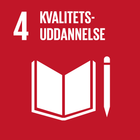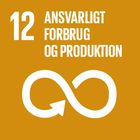Crateit's values
Social Responsible Production on Funen
With Crateit the values are deeply embedded in each toy being created. With a strong focus on the inclusion of people with special needs, Crateit's toys are about more than just wood - it is full of craftsmanship, care and a unique story. Crateit Is proud that all products not only bring joy to children, but also contribute to something larger as they are manufactured and gathered by adults with different challenges in workshops in Denmark.
Inclusion and community
With Crateit Is it no secret that everyday life contains a unique diversity, especially in production, where people with special needs daily contribute. Together creates Crateit The best framework for a sustainable production of toys. Before Crateit Has sustainability many dimensions. Work is being done to create a healthy environment where everyone feels included and heard. This social aspect of sustainability is an important part of Crateit's mission to make a difference - both for people and the environment.
Wood from FSC-certified suppliers
Crateit's toys are made of wood from suppliers who are FSC certified. When wood is FSC certified, it is made with care for both nature and the people who work in forestry. When you choose toys from Crateit, If you are instrumental in supporting responsible forest management that protects biodiversity, ensures the future of the forests and improves working conditions for those who live by the forest. Read more about FSC here.
World Goals We Work From
FAQ
Social responsibility means that a company actively strives to act and behave responsibly to customers, employees, partners and communities. With Crateit we are highly important to produce our wooden toys in workshops in Denmark, where vulnerable citizens have the opportunity to experience as dignity as any other worker in the country.
'' Economic growth and sustainable development requires that we reduce our footprints on nature as soon as possible by changing the way we produce and consume our goods and resources. ''
- UN World Goals
'' By 2030, all students must have acquired the knowledge and skills needed to promote sustainable development, including Through teaching sustainable development and sustainable lifestyle, human rights, gender equality, promoting a peaceful and non -violent culture, global citizenship and recognition of cultural diversity and of culture's contribution to sustainable development. '' '
- UN World Goals




